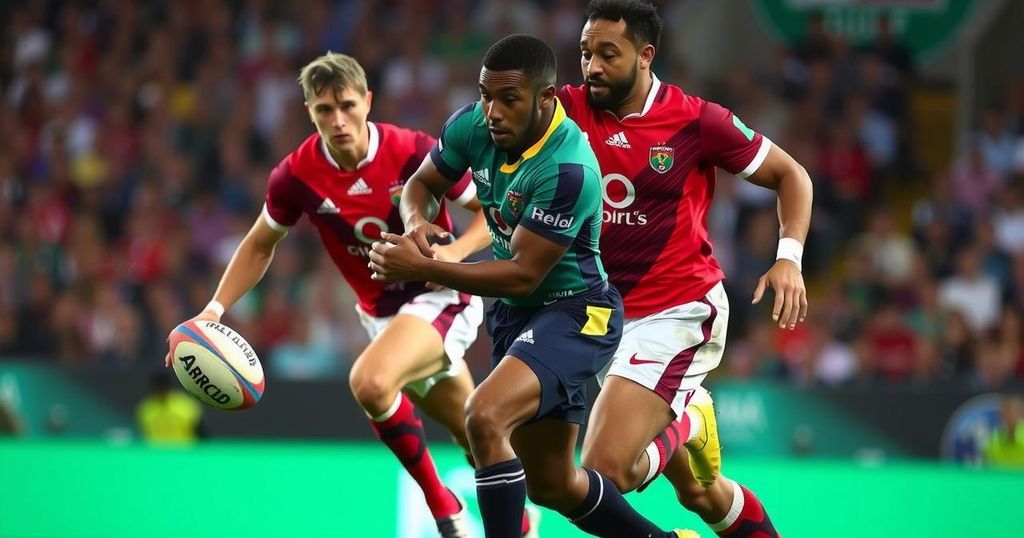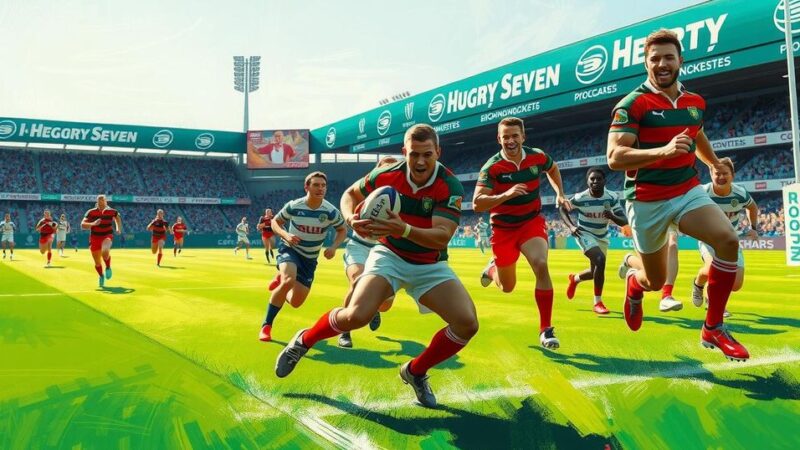South African teams face significant challenges in the Champions Cup, winning only one match out of six due to logistical hurdles and weakened line-ups. Despite the setbacks, coaches like John Dobson stress the need for improvement to justify inclusion. The situation has sparked discussions about tournament restructuring to ease travel burdens. Criticisms of South Africa’s participation underscore a need for teams to prove their worth in European rugby to secure a lasting presence on this stage.
South Africa’s foray into the European Champions Cup commenced with great optimism, particularly following the success of its national team under the guidance of Rassie Erasmus. However, the initial rounds of the competition have proven challenging, with South African teams securing only one victory out of six matches. The conundrum arises from the logistical difficulties inherent in competing across continents and the strain this places on team line-ups, which has been evident in heavy defeats suffered by franchises such as the Sharks and Stormers.
While some may perceive this as a setback, it is essential to acknowledge the broader positive impact of South African participation in European rugby. Coaches like John Dobson emphasize the necessity for South African clubs to enhance their performance and justify their inclusion in such high-level tournaments. He remarked, “As South Africans, we have to be better. We are not disrespecting [the tournament], but we need to get ourselves into a better position.” This illustrates a commitment to self-improvement and adaptation, crucial for success in international rugby.
Moreover, concern exists regarding the potential for South African teams to falter in their evaluations by northern hemisphere counterparts, particularly as expressed by Brian Moore, who questions the benefits of incorporating additional nations into already established competitions. Such sentiments highlight the underlying tensions and necessity for South African teams to prove their value beyond mere participation.
As the competition evolves, proposals for restructuring the tournament format have been suggested to alleviate travel burdens and enhance competitive equity. Both coaches and players recognize that adapting travel schedules could foster a more effective environment for South African teams. Indeed, the compelling nature of South African rugby has already made a significant contribution to the European competitions, as echoed by Welsh international Dan Biggar who stated, “They’ve got so many world-class players and they bring significant television revenue into the northern hemisphere competitions.”
Looking ahead, it will be imperative for South African teams to not only improve in standings but also to navigate the ongoing complexities of integration into European rugby effectively. Establishing a strategy that addresses both logistical issues and competitive imperatives will be crucial for fostering a sustainable presence on the international stage.
The context of South Africa’s involvement in the Champions Cup is rooted in its rich rugby history and recent successes, including back-to-back World Cup victories. Following the transition from Super Rugby to the United Rugby Championship, South African teams anticipated a flourishing future in European competitions. However, the initial results reveal significant challenges regarding travel logistics and maintaining competitive squads, raising concerns about the viability of South Africa’s engagement with these tournaments in the long term.
In summary, the participation of South African teams in the Champions Cup presents both opportunities and challenges. While the initial results have been disappointing, the recognition of logistical issues and the emphasis on self-improvement underline the commitment to achieving success on the European stage. Proposals for tournament restructuring may provide pathways to enhance competitiveness and cohesion, ultimately benefiting both South Africa and European rugby as a whole. The evolution of this relationship will be pivotal in shaping the future landscape of rugby internationally.
Original Source: rugby365.com






